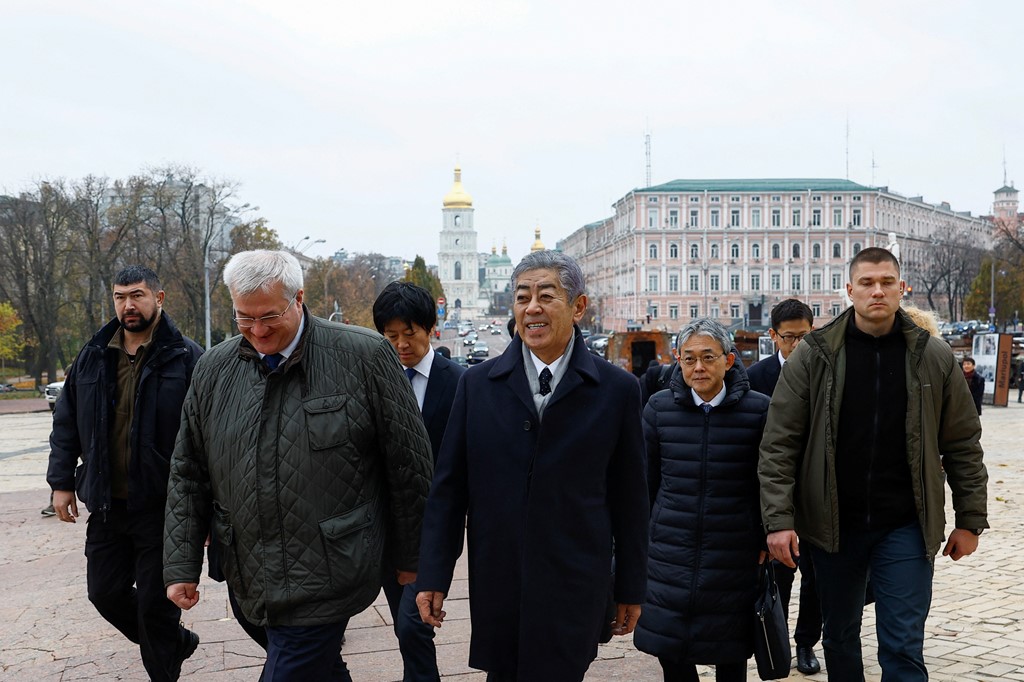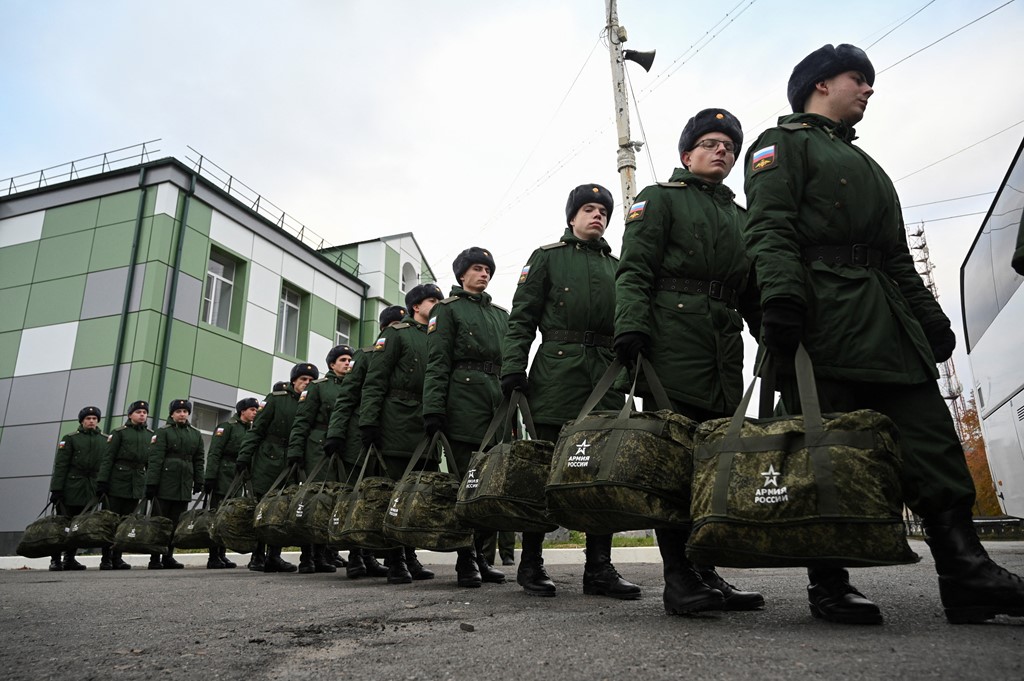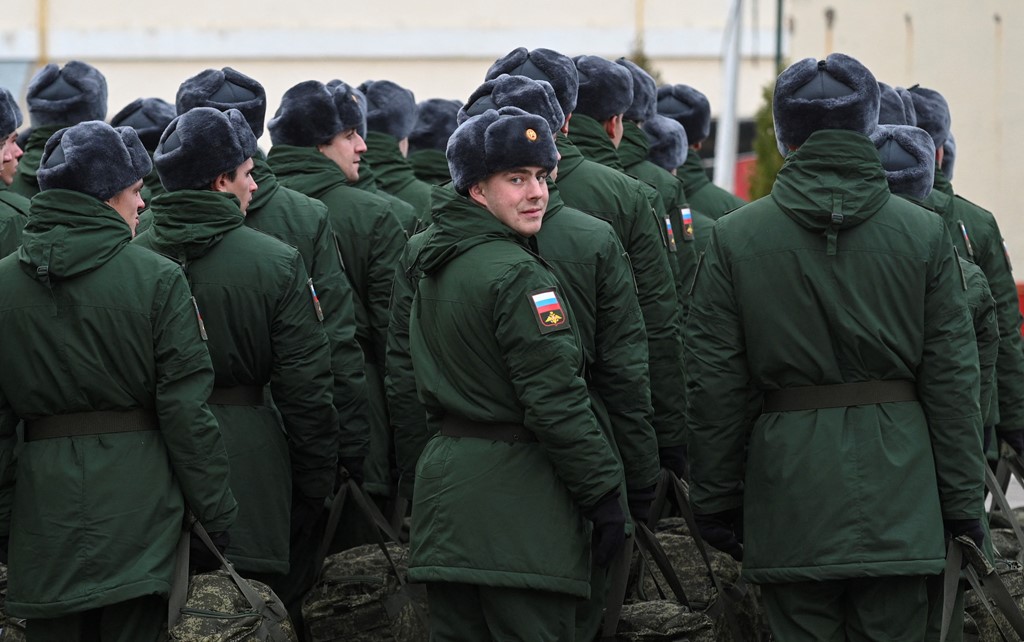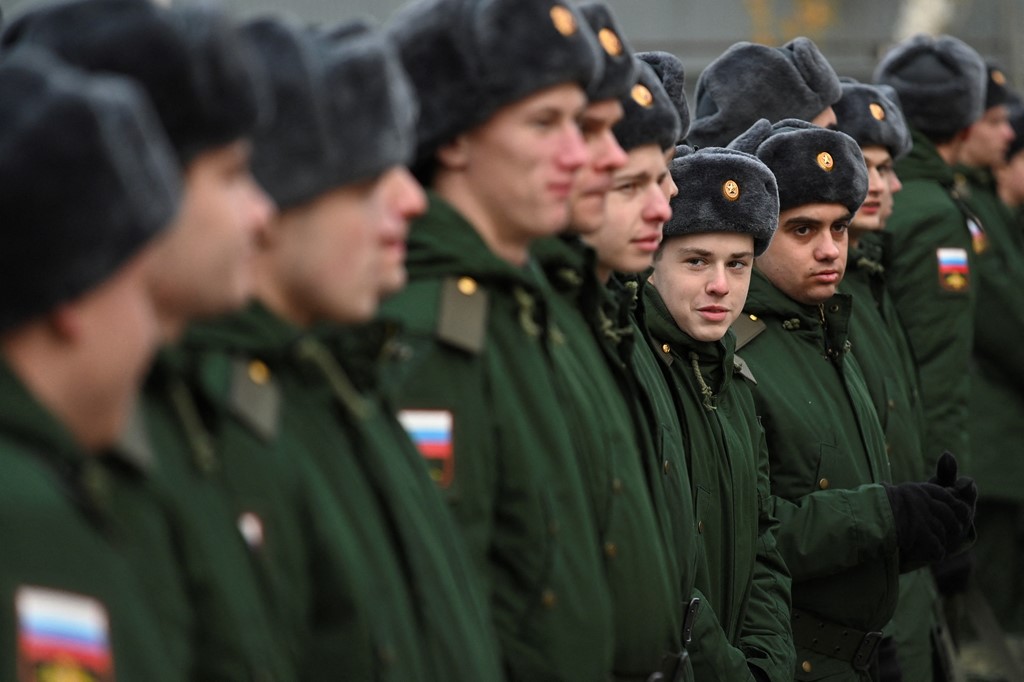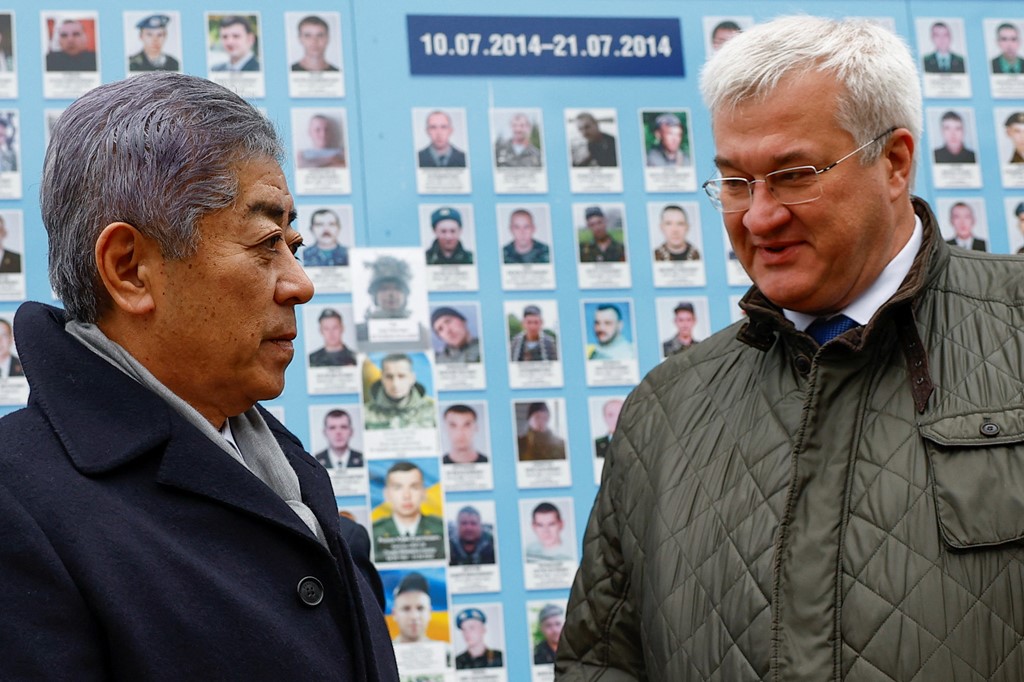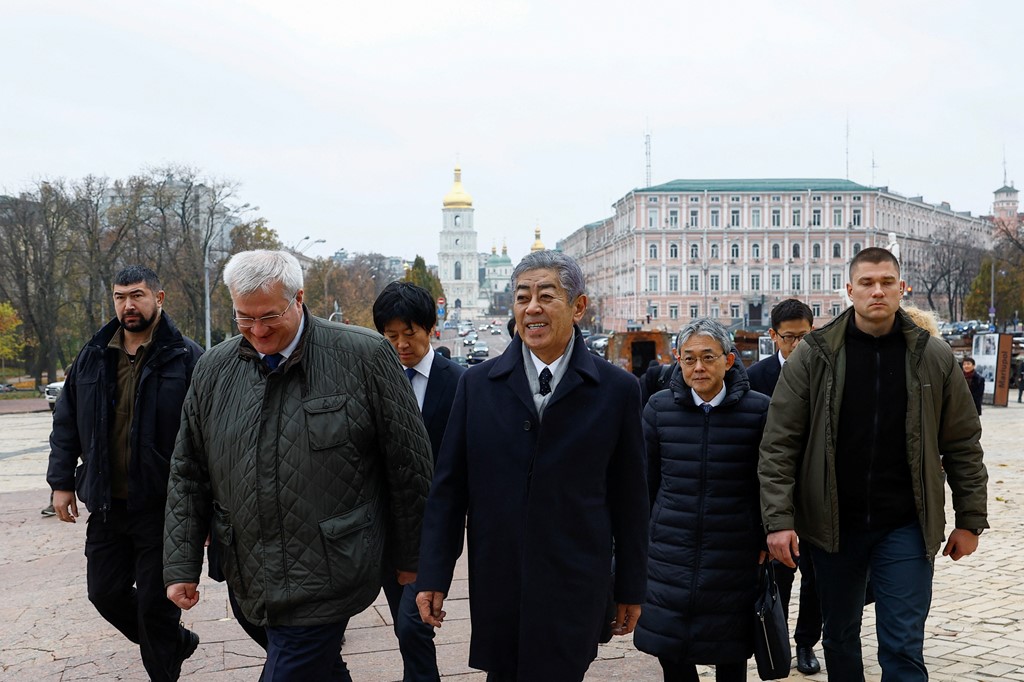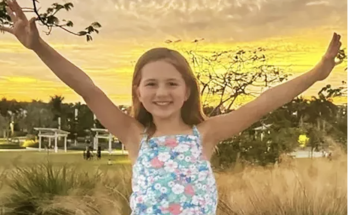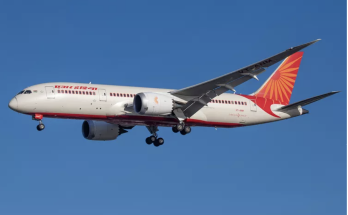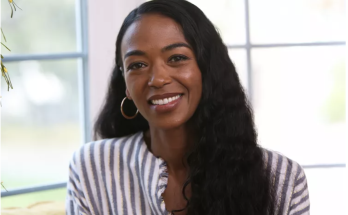A probe has uncovered a Russian plan to use decoy drones to cover for a deadly new weapon in Ukraine. Meanwhile, G7 leaders have issued a joint statement in support of Ukraine ahead of the war’s 1,000th day, vowing to continue imposing “severe costs” on Moscow.
Analysis: The call between Scholz and Putin is fascinating in its timing, and could have multiple motivations
By Siobhan Robbins, Europe correspondent
They haven’t spoken in nearly two years – so today’s call between the German chancellor and Vladimir Putin is fascinating in its timing.
Shortly after the pair hung up, lines from the German camp quickly underlined that Olaf Scholz had condemned Russia’s invasion of Ukraine and called on Putin to withdraw troops and put an end to fighting.
“The Federal Chancellor urged Russia’s willingness to negotiate with Ukraine with the aim of achieving a just and lasting peace and emphasised Germany’s unwavering determination to keep Ukraine in the peace process,” a government spokesman said in a statement confirming the conversation.
The call between the two leaders lasted around an hour, with Scholz also condemning the Russian air strikes on civilian infrastructure in Ukraine and saying the deployment of North Korean soldiers to fight against Ukraine would lead to a serious escalation of the conflict.
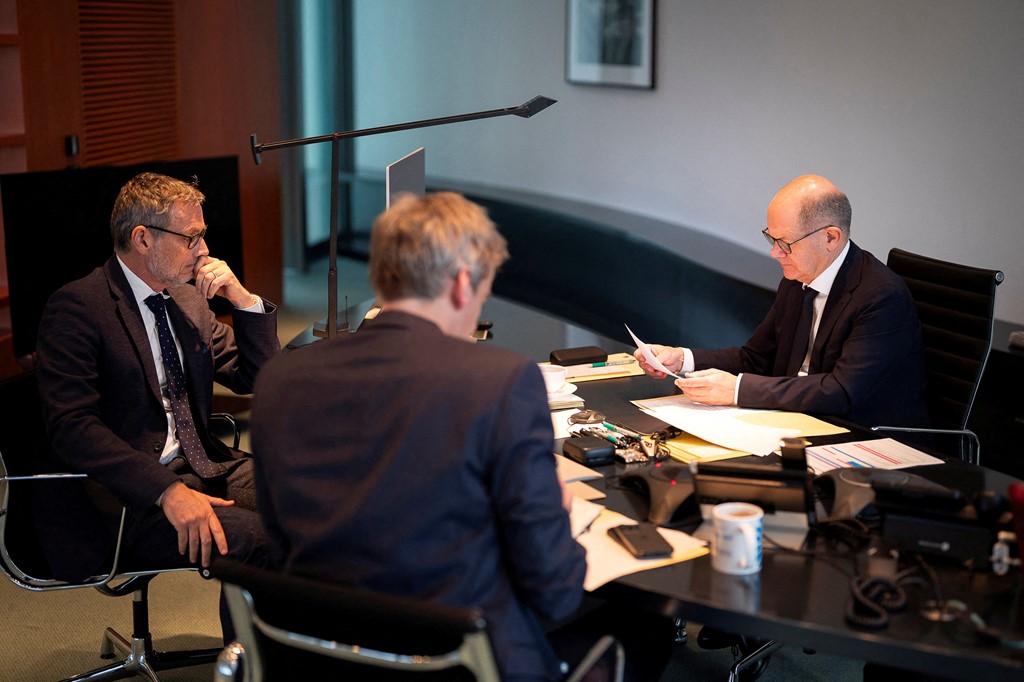
The strong words are not a surprise.
Once one of Russia’s key economic partners, relations between the two countries dramatically deteriorated following the outbreak of the war in 2022.
Germany is now one of Ukraine’s main supporters in terms of aid and weapons.
But that is perhaps not the only motivation behind the frank conversation.
Scholz’s government has crumbled, a general election is expected in February and if the polls are right, he is likely to lose his job as chancellor.
Warming up for the political battle, in a speech this week he depicted himself as the safe choice for voters, suggesting his steady leadership had helped avoid an escalation of war in Europe.
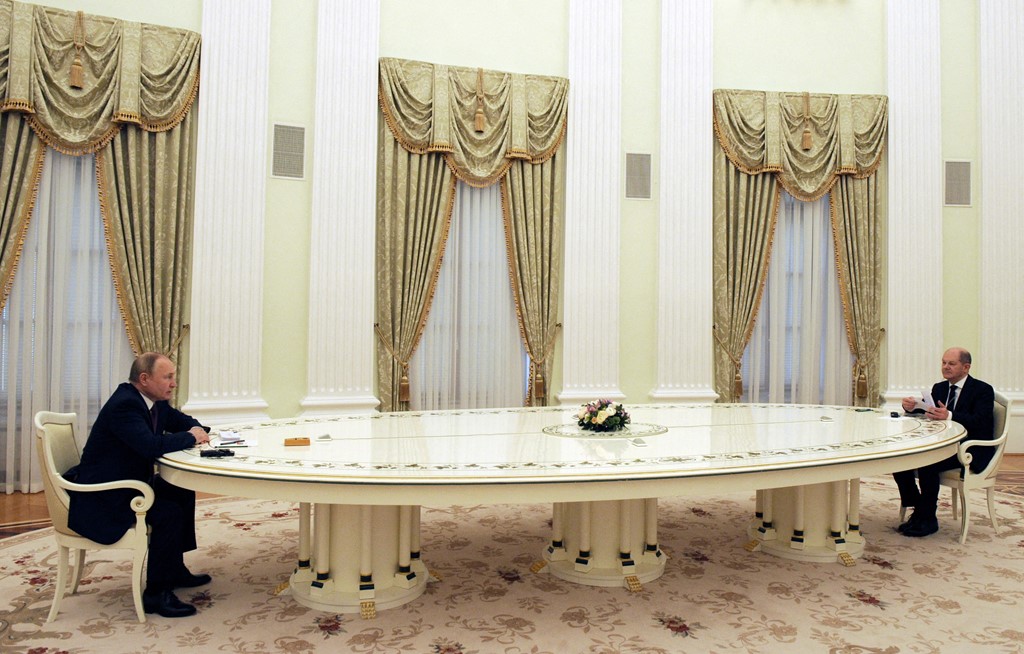
And what better way to emphasise he is the best person to deal with the Russian president than a well-timed call with him.
Trump 2.0 adds to pressure
But next year’s vote isn’t the only ticking clock facing the chancellor.
Donald Trump’s return to the White House also adds to the pressure.
The president-elect has claimed he will end the war quickly, which many in Europe fear could result in a bad deal for Ukraine.
On Tuesday, foreign ministers from Poland, Germany, France, the UK and Italy will meet to discuss the war in Ukraine, Trump’s election and Europe’s political future.
With so much uncertainty around America’s commitment to NATO and Ukraine come January, it’s prudent that the chancellor of Europe’s biggest economic power should make a call to Moscow and ensure he’s central to conversations with Russia.
Today, Scholz is said to have reaffirmed his unwavering support for Kyiv, warning Putin that he couldn’t “count on time being on his side” and urging him to enter serious negotiations.
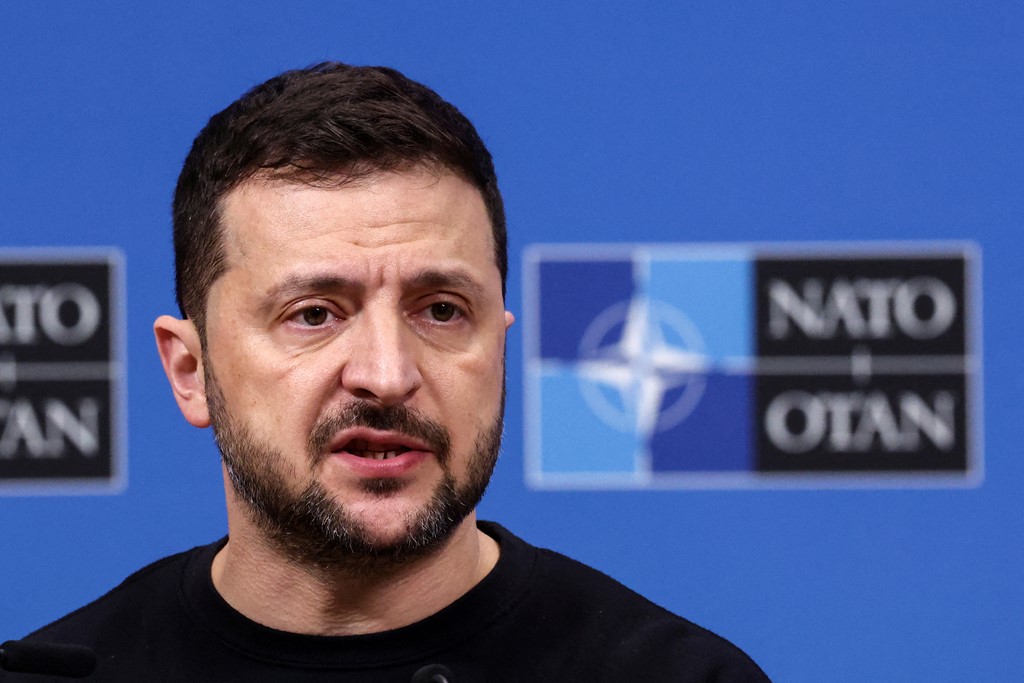
The Kremlin also released its own version of the chat, blaming the crisis on what it described as NATO’s long-standing “aggressive policy” which it claims ignores Moscow’s security and the rights of Russian-speaking residents.
Russia also didn’t miss the opportunity to put the boot into Germany by blaming the decline in their relations on “the unfriendly course of the German authorities”.
There was however no mention of the allegations of sabotage, cyber-attack and espionage which Moscow is accused of carrying out by the aforementioned “unfriendly” German officials.
At the end of the conversation, the leaders agreed to remain in touch.
We are told Scholz also spoke to Volodymyr Zelenskyy before and after the conversation.
Far from overjoyed, Zelenskyy reportedly said the call would help the Russian leader by reducing his isolation and ultimately keep the war in Ukraine going, according to Reuters quoting a source in the president’s office.
The concern is understandable.
Russia is making ground on the battlefield and Kyiv’s success is reliant on continued support from both the US and Germany; both countries whose leadership is now in flux.
We’re pausing our coverage
But we’ll be back soon with more updates on the war in Ukraine.
Here is a brief overview of the key lines from today:
- Volodymyr Zelenskyy said Ukraine must do what it can to ensure the conflict ends next year through diplomacy;
- A probe revealed that Russia is making hundreds of decoy drones it plans to use as cover for a deadly new weapon in Ukraine;
- G7 leaders vowed to continue punishing Russia with sanctions, saying it “remains the sole obstacle” to peace;
- Volodymyr Zelenskyy said German Chancellor Olaf Scholz’s call with Vladimir Putin has opened “Pandora’s box”. He said the conversation between the two leaders undermined efforts to isolate the Russian leader.
Japanese minister in Kyiv
We reported earlier that Japan’s foreign minister had arrived in Kyiv to discuss North Korea’s deepening military alliance with Russia.
Now, images are emerging of Takeshi Iwaya walking through the Ukrainian capital with officials.
High on the agenda is Tokyo’s “grave concern” over growing military cooperation between North Korea and Russia, the ministry said.
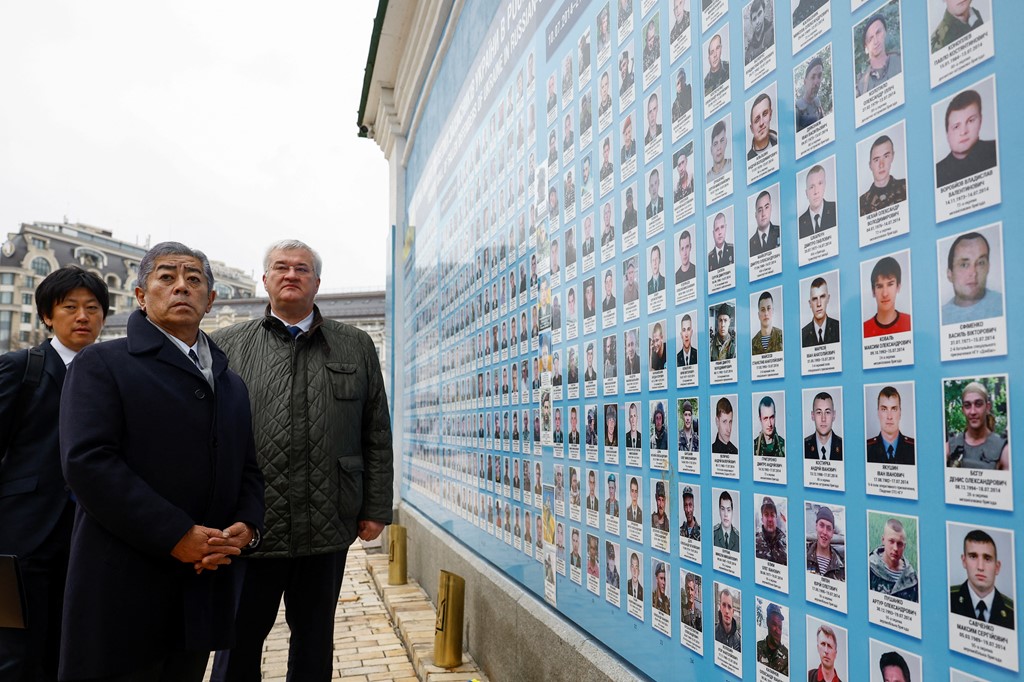
Russian and Belarusian held in Chad return to Moscow – reports
A group of four Russian and Belarusian nationals, detained in the central African state of Chad for more than a month, flew back to Moscow yesterday, Russian media reports.
“Three Russians and a citizen of Belarus, who were detained and held in Chad, have been freed and arrived in Moscow this evening,” state news agency RIA said.
The Moscow daily Kommersant said the return of the four men had been confirmed by the Fund to Protect National Values, a group promoting Russian cultural interests abroad.
Key moments from the last 24 hours
It’s just turned 12am, so here’s a roundup of what has been happening in the last 24 hours:
German chancellor calls Russian president
German Chancellor Olaf Scholz and Vladimir Putin spoke on the phone for an hour, the first time they have had direct contact since December 2022.
The German government said Olaf Scholz condemned “Russia’s war of aggression” during the call, calling on Putin to end it by withdrawing troops.
While the Kremlin said despite differences of the two leaders, the dialogue was “extremely positive”.
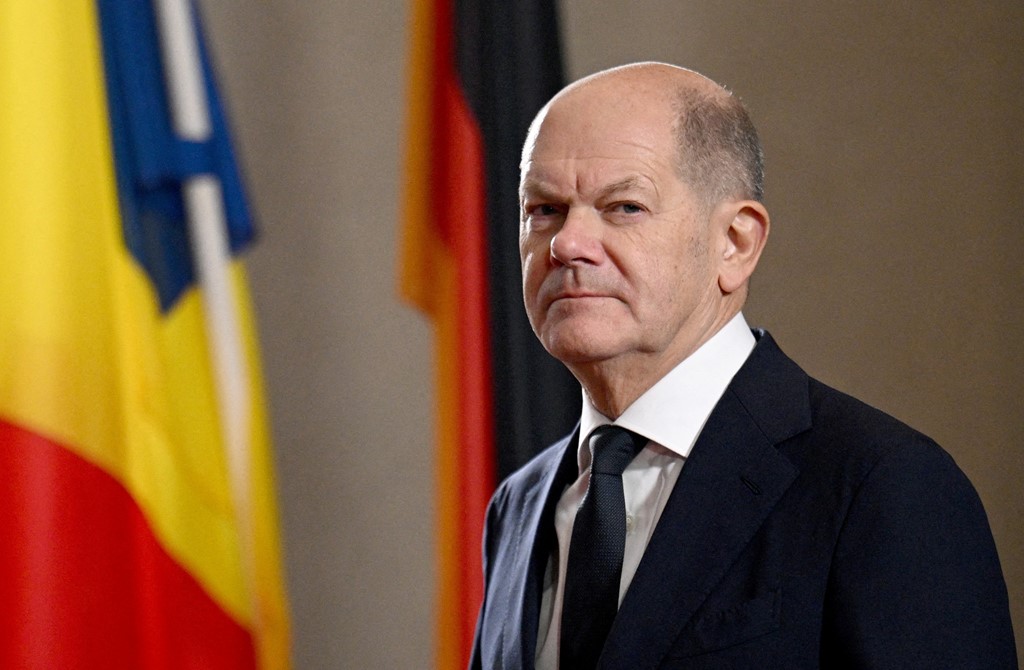
Russian advances in the east
Ukrainian troops are facing a “challenging” situation in the country’s east, where Russian forces have been waging a major offensive for months, Volodymyr Zelenskyy said.
Speaking about the situation on the front in a radio interview, the Ukrainian leader cited several issues including soldier fatigue, problems with equipping and rotating brigades and delays to military aid from allies.
Russia claims to have captured another series of villages and settlements in Ukraine’s Donetsk region in the past week, where it is focusing offensive pressure on the strategic towns of Pokrovsk and Kurakhove, which are both vital to Ukraine.
One dead and 10 injured in Ukrainian port city
One person has died and at least 10 others have been injured in an overnight Russian airstrike in Odesa, officials said.
Oleh Kiper, the regional governor of the southern port city, said a multistorey residential building was destroyed in the centre of the city and that high-rise flats and cars were damaged.
While the region’s mayor Hennadiy Trukhanov said the attack temporarily left more than 40,000 people without heating.
Putin phone call has opened ‘Pandora’s box’
Reacting to the phone call between Russia and Germany, Volodymyr Zelenskyy said Putin has got exactly what he wanted.
He said the conversation between the two leaders undermined efforts to isolate the Russian leader.
“Now there may be other conversations, other calls. Just a lot of words,” Zelenskyy said.
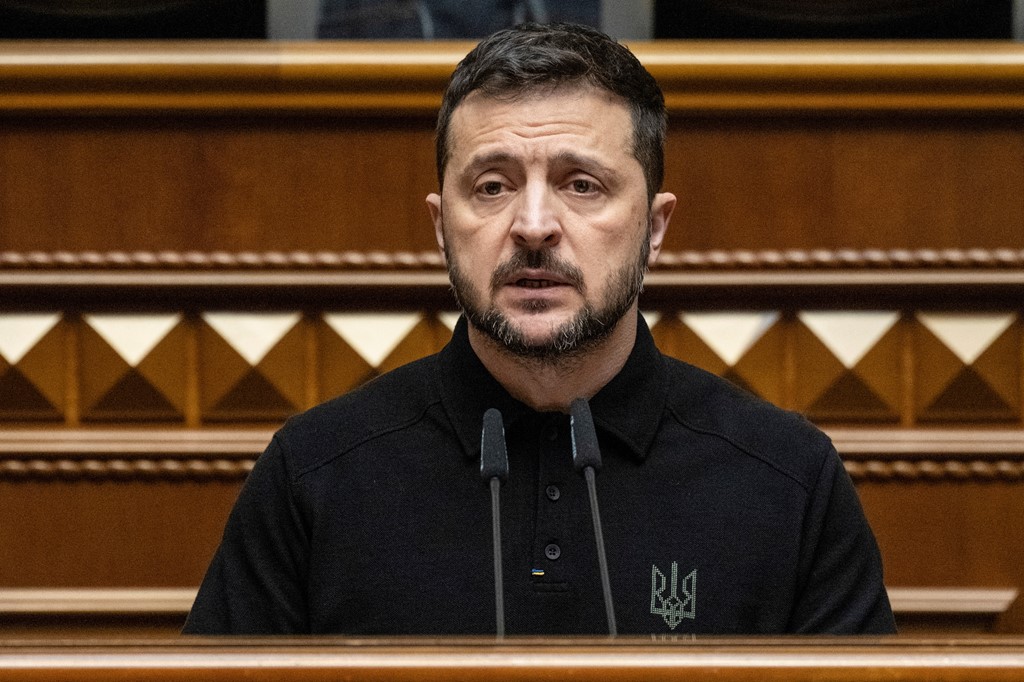
South Korea and Japan express concern over Russia-North Korea ties
South Korean President Yoon Suk Yeol and Japanese Prime Minister Shigeru Ishiba have agreed to continue developing trilateral cooperation with Washington under the new administration of president-elect Donald Trump, Yoon’s office said this evening.
The two leaders also expressed strong concern over Russia North Korea military cooperation including North Korean troops deployed to Russia, the office said in a statement.
Yoon and Ishiba met on the sidelines of the Asia-Pacific Economic Cooperation Summit in Lima, Peru.
Earlier we reported that Japan’s foreign minister had arrived in Kyiv to discuss North Korea’s deepening military alliance with Russia (see post at 7.04pm).
According to US, South Korean and Ukrainian intelligence assessments, up to 12,000 North Korean troops have been sent to Russia as part of a defence treaty between the countries.
Watch: Inside Ukraine’s underground schools
With regular schools deemed too vulnerable to attack, the education authorities in Kharkiv built classrooms inside the city’s underground network.
Kharkiv is Ukraine’s second largest city which has been a frequent target of Russian attacks.
Here, Sky’s chief correspondent Stuart Ramsay reports from the scene…
In pictures: Russian conscripts prepare for service
Russian conscripts called up for military service have been preparing for their departure in the Rostov region of Russia.
Earlier this year, Vladimir Putin signed a decree setting out the routine spring conscription campaign, calling up 150,000 citizens for statutory military service.
All men in Russia are required to do a year-long military service, or equivalent training during higher education, from the age of 18.
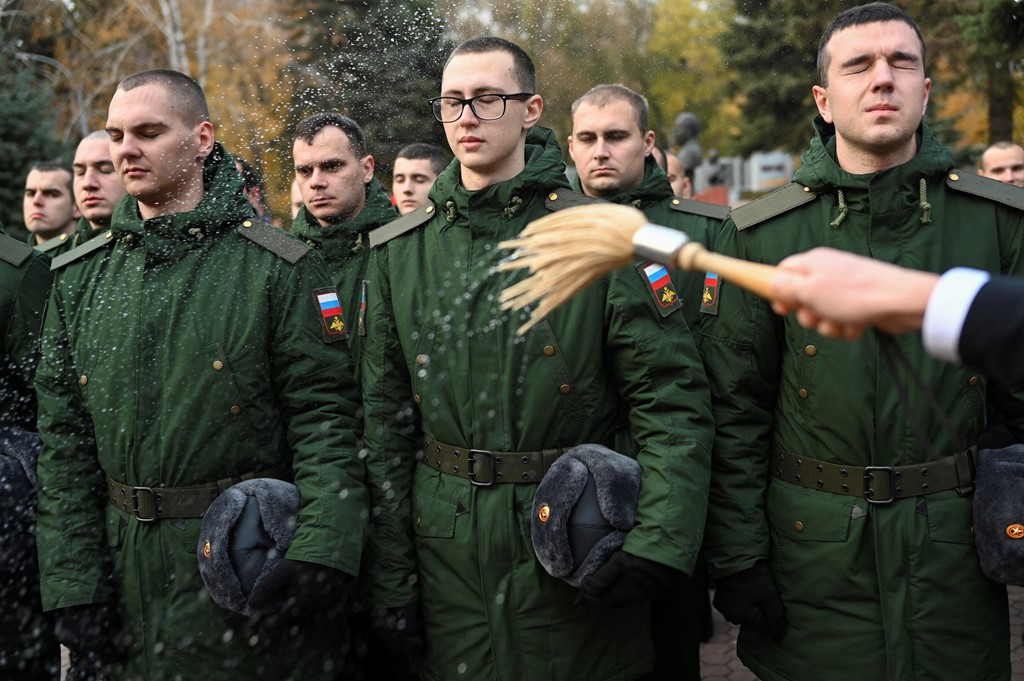
Zelenskyy: War will end sooner under Trump
Volodymyr Zelenskyy has said that the “war will end sooner under Donald Trump”.
In a radio interview aired today, the Ukrainian president said: “I think that the war will end and that is not abstract but there is no exact date.
“Of course with the policy of this team which will now lead the White House the war will end sooner.”
During the interview, Mr Zelenskyy also said Vladimir Putin was not interested in agreeing a peace deal.
Asked about his conditions for negotiations, Mr Zelenskyy said Ukraine must remain “strong” and “not alone with Russia”.
The interview comes days after the Ukrainian leader said that he had a “constructive exchange” with Trump during their phone conversation on his US election victory.
Speaking after the call, Trump also said: “We’re going to work very hard on Russia and Ukraine. It’s got to stop.”
London lecture derailed by pro-Palestinian protesters
By security and defence editor Deborah Haynes
A lecture by the Czech Republic’s foreign minister at a university in London was derailed by pro-Palestinian protesters just as he started to talk about Russia’s “brutal” war in Ukraine.
Jan Lipavsky had spent about 13 minutes describing how certain historical moments had shaped the collective identity and foreign policies of central European countries like his and he was turning to his final remarks, which focused on Russian aggression today.
“We have been witnessing the Russian onslaught on Ukraine,” the senior European diplomat said, addressing an audience of largely students at a University College London campus on Friday. A Sky News journalist was also present.
“The very first plan of the Russian full-scale invasion into Ukraine…”
However, Mr Lipavsky was unable to finish his sentence as a young man, who had been sitting at the back of the room, jumped up and shouted: “What about the Israeli worse war in Gaza?”
The young man continued: “You are complicit in making that… You are a war criminal.”
A young woman near to him also stood up and started to shout.
She said: “You talk about sovereignty. About the rights of a nation. What about the rights of Palestinians to exist? Shame on you… Free, free Palestine.”
A second woman and two other men similarly took to their feet and joined in chants of “Free Palestine” and accused the Czech foreign minister of “genocide”.
A couple of audience members tried but failed to persuade the protestors to sit down and let the minister respond to the allegations and finish his comments on the horrors of Russia’s war.
The minister stayed standing, but the protest continued and in the end he left.
Writing subsequently on the social media site X, Mr Lipavsky said: “On the recommendation of the British security forces, I unfortunately had to end my lecture at University College London early today. It’s not just about me, in such a situation it’s about the safety of the entire delegation that came here with me.”
A spokesperson for University College London said: “We are deeply disappointed that a public talk by the Czech minister of foreign affairs at UCL was disrupted by a small group of protestors and had to end early.
“The protest lasted around 15 minutes and our security teams managed the situation appropriately. The police were also called due to the high-profile nature of the speaker.
“We are looking into what happened and will take appropriate action as necessary.”
Japanese minister arrives in Kyiv to discuss North Korea-Russia ties
Japan’s foreign minister has arrived in Kyiv to discuss North Korea’s deepening military alliance with Russia.
Takeshi Iwaya will meet his Ukrainian counterpart, Andrii Sybiha, to reaffirm Japan’s “strong support” for Ukraine against Russia’s invasion and to discuss further sanctions against Moscow, Japan’s foreign ministry said.
High on the agenda is Tokyo’s “grave concern” over growing military cooperation between North Korea and Russia, the ministry said.
According to US, South Korean and Ukrainian intelligence assessments, up to 12,000 North Korean troops have been sent to Russia as part of a defence treaty between the countries.
And last week, Ukrainian officials said Ukraine and North Korean troops were engaged in small-scale fighting.
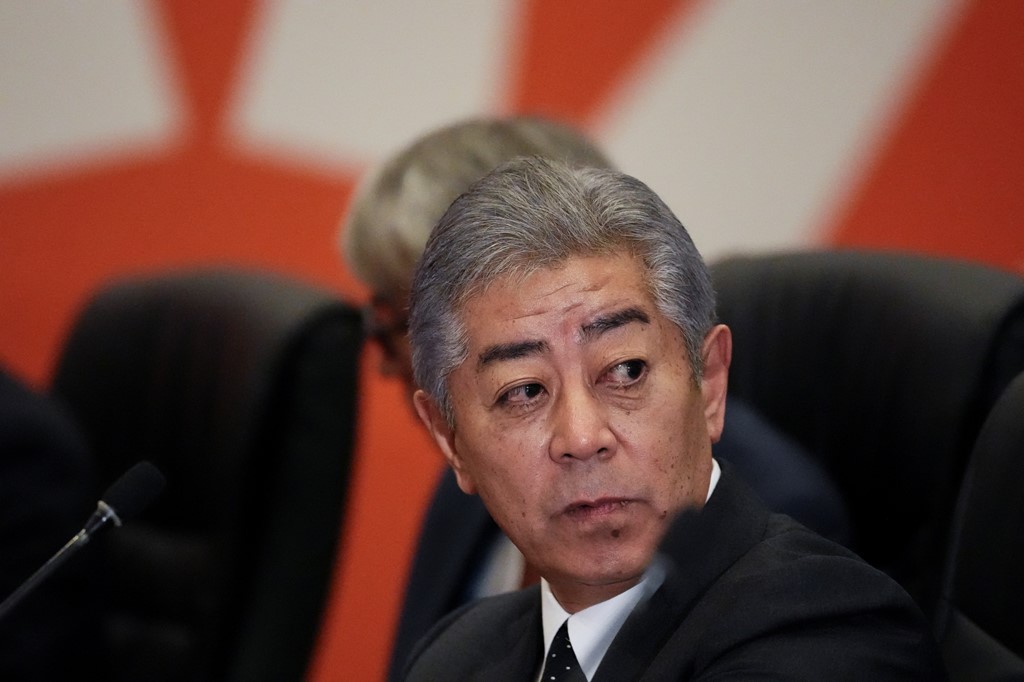
Analysis: Concern about what Trump will do
As Donald Trump prepares to enter the White House once more, our security and defence editor Deborah Hayes says there is a focus on what Trump will do.
“Volodymyr Zelenskyy is very mindful of what a change in the White House is going to mean in his country and for the course of the war,” she says.
“Joe Biden hasn’t been good news for Ukraine and there has been a lot of frustration about delays and hesitations all the way along since the invasion when it comes to US support.
“The cries for help from Ukraine have always been met slowly – many would say.
“But the US support has been and continues to be absolutely critical and that’s why there is such focus and concern about what Trump is going to do.”
Biden expected to press China’s Xi on North Korea’s ties with Russia
Joe Biden is expected to use his final meeting with China’s leader, Xi Jinping, to urge him to dissuade North Korea from further deepening its support for Russia’s war on Ukraine.
The talks today, which will be on the sidelines of the annual Asia-Pacific Economic Cooperation summit in Peru, come just over two months before Biden leaves office.
It will be Biden’s last check-in with Xi.
With the final meeting, officials say Biden will be looking for Xi to step up Chinese engagement to prevent an already dangerous moment with North Korea from further escalating.
White House national security adviser Jake Sullivan said Biden administration officials will advise the Trump team that managing the intense competition with Beijing will likely be the most significant foreign policy challenge they will face.
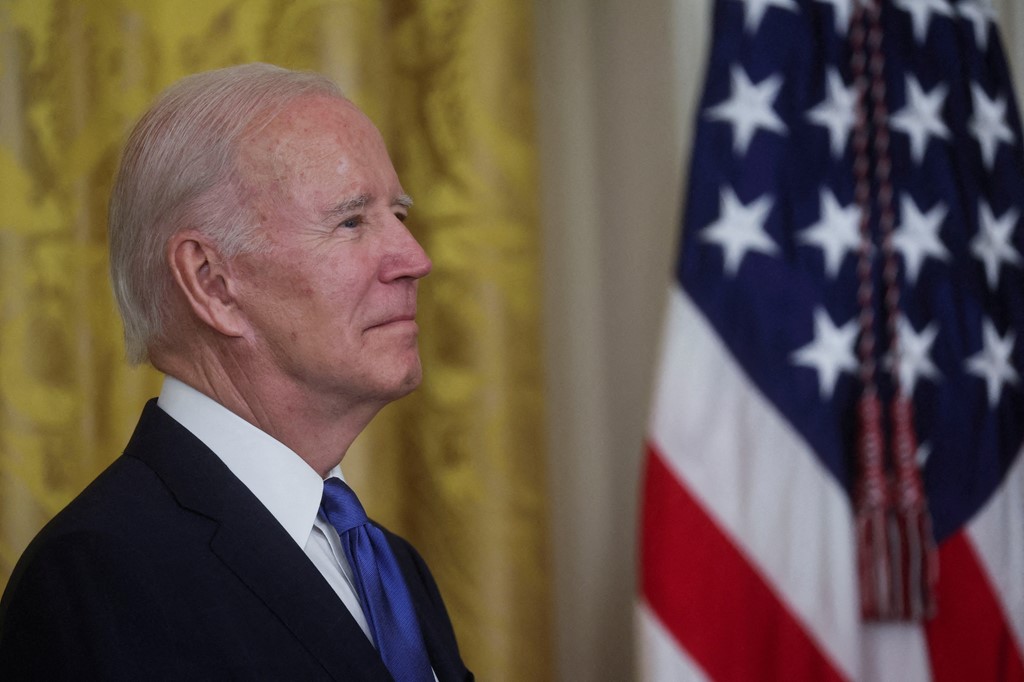
Analysis: ‘A lot at stake’ for Zelenskyy
We have been reporting on German Chancellor Olaf Scholz speaking with Vladimir Putin on the phone for an hour.
Sky correspondent Adele Robinson says that for Volodymyr Zelenskyy “there is a lot at stake here”.
“There are two factors to consider when thinking about the reasons that have pushed this call between Scholz and Putin forward,” she says.
“One is the political situation in Germany – there is a snap election coming next year and some of the strongest political rival voices are demanding negotiations with Russia.
“The second factor is the US relationship being at a turning point with Russia and there is speculation about what a second Donald Trump term could mean for the war.”
Robinson notes that this was the first call with Mr Scholz and the Kremlin leader.
“Scholz asked Putin to negotiate for a just peace deal. He also condemned Russia’s war of aggression,” she adds.
“Unsurprisingly, news of the call didn’t go down very well with Zelenskyy.
“There are concerns from Zelenskyy that this call legitimises Putin. He’s supposed to be frozen out of the international community.”
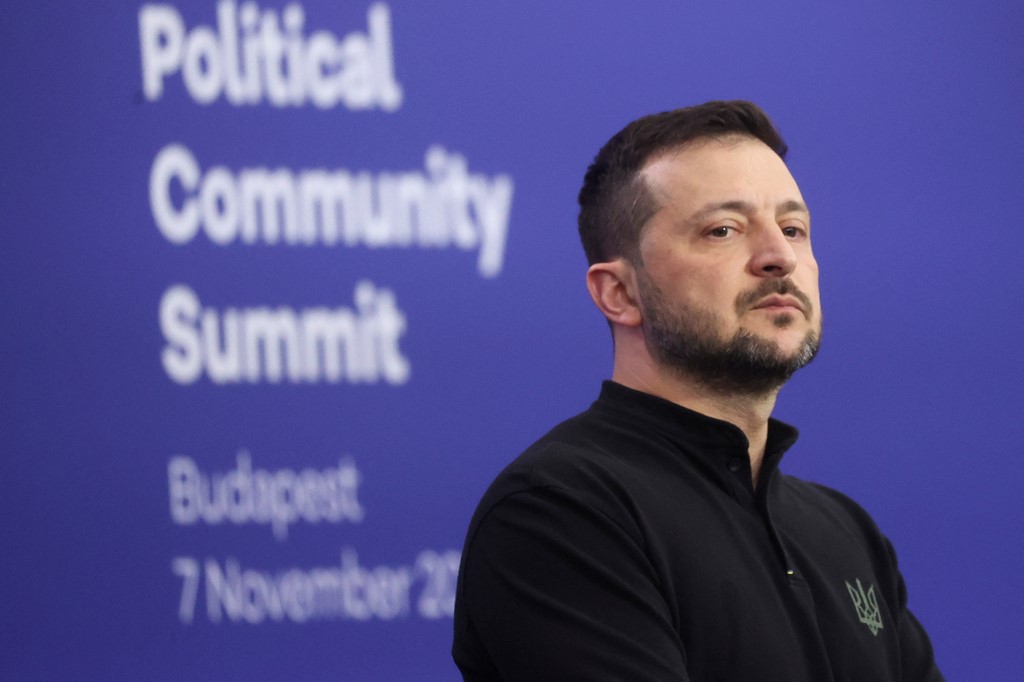
Estonia to send new military package to Ukraine
Estonia’s defence ministry has announced a new round of military aid for Ukraine.
Naval uniforms, ballistic protection equipment, scopes and ammunition are among the items being sent to support Ukrainian troops, it said.
Hanno Pevkur, the country’s defence minister, said Kyiv “continues to need help from Estonia and the free world to protect itself”.
“This time, the aid package has been put together from the reserves of our defence forces, taking into account the needs of Ukraine, and still in such a way that Estonia’s defence capacity does not suffer,” he said.
Zelenskyy ‘deeply grateful’ for G7 declaration of support
Volodymyr Zelenskyy says he is “deeply grateful” for the support of G7 leaders after they vowed to continue punishing Russia with sanctions.
Earlier, the leaders issued a joint statement saying Moscow was the “sole obstacle” to peace in Ukraine and that the G7 would keep “imposing severe costs on Russia through sanctions, export controls and other effective measures”.
Posting on social media, Zelenskyy said he was “deeply grateful” for the bloc’s “united voice in standing with Ukraine”.
“Their support helps Ukraine protect its people against terror, ultimately saving countless lives,” he said, adding it was “vital” to send a message to Russia that aggression “will not be tolerated”.
‘Meaningless’ calls with Putin give illusion that West ready to ‘give in’, says Zelenskyy aide
There is a “strange sense of meaningless” to phone calls between Vladimir Putin and “democratic countries”, a senior aide to Volodymyr Zelenskyy has said.
The Ukrainian president criticised a call between German Chancellor Olaf Scholz and Putin yesterday, saying it has opened a “Pandora’s box” and undermines efforts to isolate Russia.
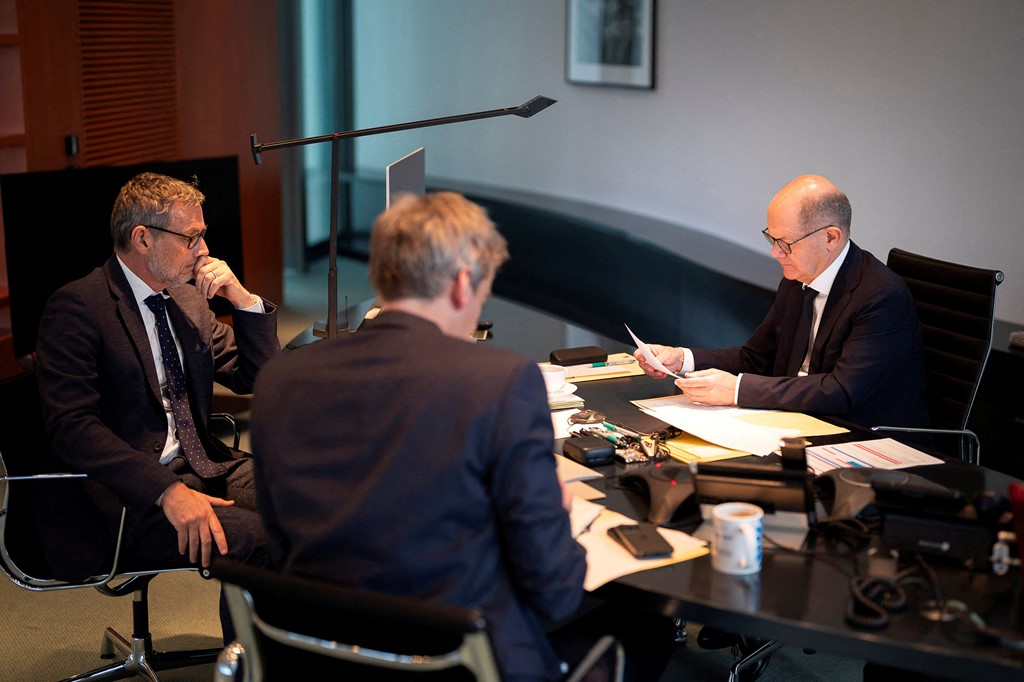
Mykhailo Podolyak, adviser to the Ukrainian president’s office, said in a post to X that “phone calls to Putin from leaders of democratic countries” have an “extremely strange sense of meaninglessness”.
He said it was “obvious” that Putin was “only inclined to ultimatums” and “wants to continue the war, seize land, kill, kill, and kill once again”.
“What is this passion for telephone conversations with [the Russian Federation]? For what? What is the purpose?” he said.
Podolyak called on the West to stop giving Putin the “illusion” that it was ready to “give in to him”.
In pictures: Japan’s foreign minister on surprise visit to Kyiv
As we reported this morning, Japanese foreign minister Takeshi Iwaya is in Kyiv today for a surprise visit to underline his country’s support for Ukraine against Russia.
Iwaya met his Ukrainian counterpart Andrii Sybiha, with the pair attending a memorial for fallen soldiers in the capital.
Tokyo’s “grave concern” over growing military cooperation between North Korea and Russia, would be high on the agenda for talks between the pair, Japanese officials said.
Iwaya will also reaffirm Japan’s “strong support” for Ukraine, they said.
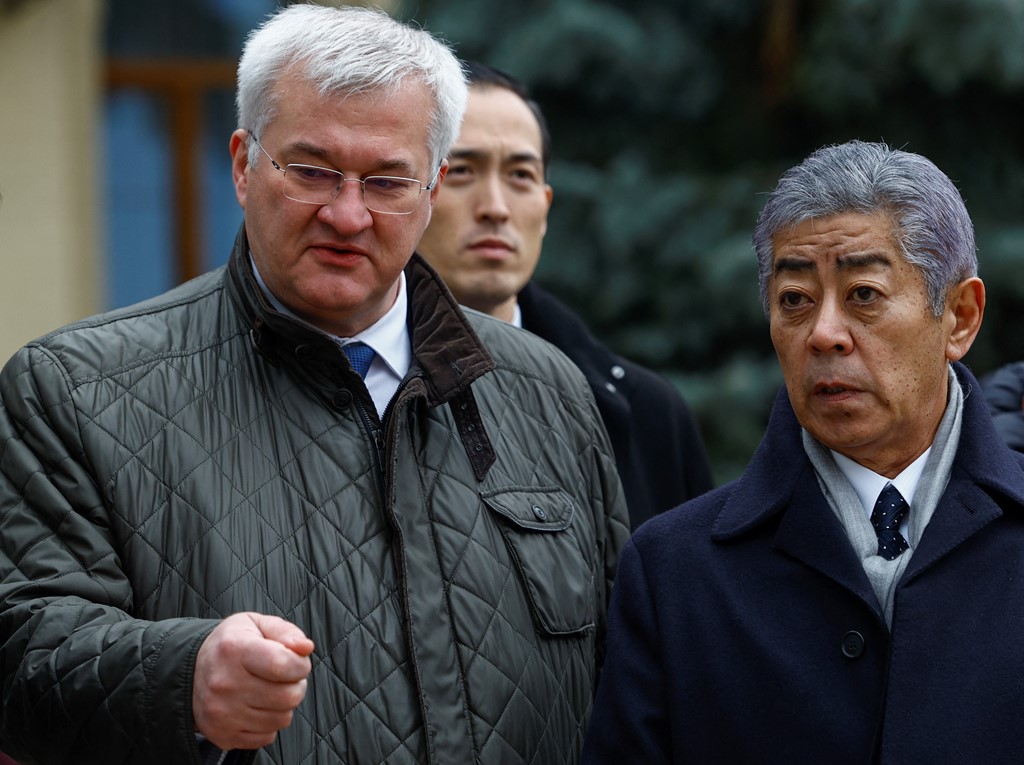
Ukraine destroys Russian missile system ‘worth $10m’
Ukraine’s military destroyed a Russian anti-aircraft missile system worth $10m (£7.9m), Ukrainian interior minister Ihor Klymenko has said.
In a post to Telegram, Klymenko said fighters in a drone unit of Ukraine’s National Guard carried out the hit on the Russian BUK-M1 system.
“The enemy’s equipment was completely destroyed with a precise strike,” he said, adding: “The cost of such a complex reaches 10 million US dollars… we make the enemy weaker every day.”
The minister did not say when the attack happened.
Head of Georgian breakaway region prepared to quit if anti-Russia protesters leave parliament
The president of Georgia’s Russian-backed breakaway region of Abkhazia says he will resign when protesters leave parliament in the capital of Sukhumi, according to Russian state media.
Russia yesterday advised all its citizens to leave the region after protesters stormed the parliament building, demanding the resignation of Aslan Bzhania over an unpopular investment agreement with Moscow.
Abkhazia and South Ossetia have effectively been under the control of Moscow since a short conflict between Russia and Georgia over the regions in 2008.
Moscow recognises both as independent states, while most UN members view them as Russian-occupied Georgian territory.
While the focus of coverage has been on Russia’s war in Ukraine, many have pointed to Vladimir Putin’s apparent efforts to widen the scale of Moscow’s influence on other former Soviet Bloc countries.
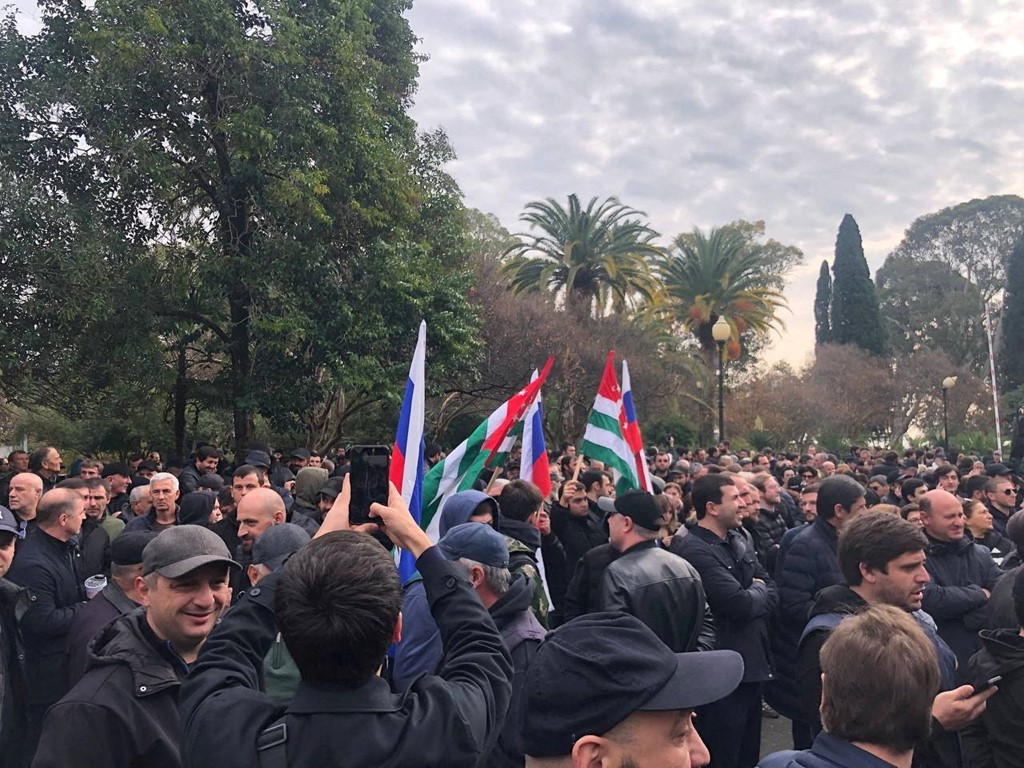
Zelenskyy: ‘Challenging’ situation in east fuelled by delays to military aid
We’ve more to bring you now from Volodymyr Zelenskyy’s interview to Ukrainian radio which aired in the country this morning.
Earlier we reported the Ukrainian president’s comments on wanting to end the war through diplomacy, and his hopes for a meeting with Donald Trump after his inauguration in January (see 8.21 post).
Zelenskyy also acknowledged a “challenging” situation for Kyiv’s troops in eastern Ukraine, where Russia has been waging a fierce offensive for months.
Asked about reported analysis showing Russia occupied a record amount of territory last month, Zelenskyy cited several issues including the staffing of new brigades and delays in weapons supplies from partners.
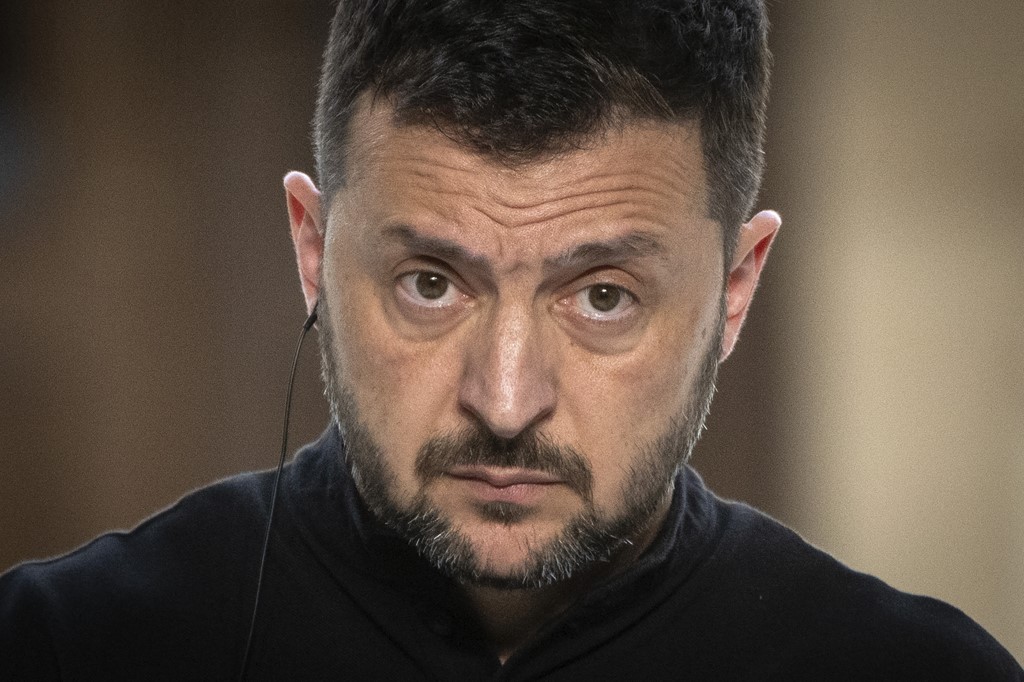
“We have been waiting for some arms shipments for 12 months since they were approved by Congress,” Zelenskyy said.
He said some “strong” brigades in the east were due for rotation – but added that new troops being drafted in without proper weaponry would be “like cannon fodder”.
“No one wants that. So, soldiers get exhausted and have to withdraw,” he said.
Once new brigades are “armed and ready”, Russian forces will “find themselves in the same position we currently face in the east,” Zelenskyy said.
